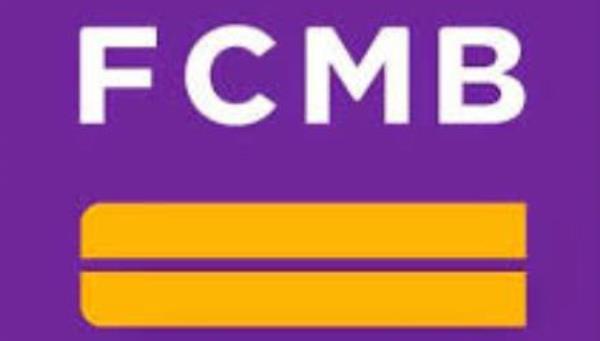E-Financial
3 Trends in Africa’s Crypto Sector to Expect in 2022

For the global cryptocurrency industry, 2021 is likely to be remembered as one of the many years bitcoin broke past its all-time price high and drove the sector even closer towards mainstream adoption. However, from a regional perspective, it is also arguably the year where Africa took centre stage.

From a reported 1,200% surge in crypto adoption, the launch of Africa’s first central bank digital currency and the Central Bank of Nigeria’s circular on cryptocurrencies, it is hard to navigate any of the key conversations surrounding the sector without referencing activities on the continent.
As we kick off the new year, Marius Reitz, Luno’s General Manager for Africa, explores three key trends to expect on the continent throughout the year:
Rethinking Regulation
To describe regulation of Africa’s crypto sector in 2021 as eventful would be an understatement. Last year saw the continent’s major economies take a much more proactive stance on consumer protection with one strategy in particular grabbing attention – the introduction of blanket bans. For countries that adopted these measures, the results have been far from ideal with trading activity being pushed underground and regulators left with a reduced level of visibility of the sector.
With this in mind, we could see a greater openness amongst regulators to work alongside industry players to establish a more robust and effective framework, which could encourage other African countries to follow suit.
As we’ve witnessed from China, blanket bans do little in terms of limiting trading activity and protecting consumers but engaging experts who understand the nuances of new and complex technology like cryptocurrencies can provide a huge amount of value on how to protect consumers from its risks.
Kenya’s emergence
With Nigeria’s crypto ban dominating headlines throughout 2021, one significant development on the continent which potentially slipped under the radar was Kenya’s ranking as the world’s leader in P2P trading volumes for the second consecutive year.
The country’s crypto industry is booming with a rapidly emerging crop of companies building blockchain-based solutions and considering its young population, high levels of mobile connectivity and familiarity with digital payment solutions like mobile money, it’s firmly positioned to emerge as East Africa’s leading crypto hub in 2022.
However, in order for any significant inroads to be made in terms of mainstream adoption, the importance of widespread crypto education can’t be understated.
According to Luno’s 2021 consumer research survey, 64% of Kenyans don’t invest in cryptocurrencies as they don’t simply understand them and given Kenyans were also found to be the most proactive in seeking out financial advice from traditional sources (i.e. financial services companies, publications and advisors) before making investment decisions, it is vital crypto firms go the extra mile to ensure the right information is readily available.
A new solution to Africa’s remittances problem
It is no secret that investments are currently the most prevalent use case for cryptocurrencies across Africa however, one area which could receive a major boost this year is remittances.
According to the World Bank, total remittances in Sub-Saharan Africa alone broke past $45bn in 2021 but with the severe lack of foreign currency reserves across Africa stopping companies from receiving international payments and remitting their profits, many businesses could look towards cryptocurrencies as an alternative means of handling cross-border transactions.
The key strength of cryptocurrencies in this area lies in the open and decentralized blockchain networks that support them, which allow money to be easily transferred between parties without all the lag times and exorbitant fees no matter who or where they are.
Similar to most aspects of the crypto industry, progress in this area will be heavily dependent on a favourable regulatory climate and should this materialize, cryptocurrencies could emerge as a major asset for companies with extensive operations throughout Africa.
Expect the unexpected
Despite the huge influence developments in the three categories mentioned will have over the course of the next year, they are by no means the only trends to keep an eye on.
For example, attracting institutional investment into Africa’s crypto space is still a major problem; however, we could see more mature markets on the continent like South Africa introduce stronger regulatory frameworks to encourage more participation from these stakeholders.
Equally, as the sector grows in popularity, it is attracting world-class talent as well as attention from leading media outlets who are dedicating more resources to quality reporting and both of these are trends that we should expect to continue.
However, if we have learnt anything from events over the last two years, we should also expect the unexpected and whilst this can often breed uncertainty, a quick look at Africa’s current position and prospects should still provide huge optimism that it remains the most promising region for the adoption of cryptocurrencies.
E-Financial
FCMB Capital Markets Leads ₦11.85bn GLNG Bond for LNG Plant Expansion

FCMB Capital Markets Ltd. successfully led the issuance of GLNG Funding SPV Plc’s ₦11.85 billion 10-Year Series 2 Senior Guaranteed Fixed Rate Infrastructure Bond, which closed in February. This milestone underscores investor confidence in Nigeria’s clean energy transition.

The bond, issued by GLNG Funding SPV Plc and sponsored by Green Liquified Natural Gas (GLNG) as part of its capital-raising plans, is a key step in financing the construction of a mini-LNG plant with a liquefaction capacity of 200,000 standard cubic meters of gas per day.
The facility will help bridge Nigeria’s power supply gap and offer industries a cleaner, cost-effective alternative to diesel.
The issuance was backed by InfraCredit, an AAA-rated infrastructure credit guarantee firm, and is expected to generate over 500 direct and 2,000 indirect jobs, supporting Nigeria’s sustainable economic growth.
“FCMB Capital Markets remains committed to financing projects that drive clean energy adoption and long-term economic impact,” said Ikechukwu Omeruah, Managing Director, FCMB Capital Markets Limited.
“We appreciate the trust placed in us by GLNG and the invaluable role played by InfraCredit and investors in enabling the successful conclusion of this transaction.”
As gas adoption accelerates in Nigeria, a 2022 Clarke Energy report estimates that manufacturers could save up to 30% by switching to gas from the grid and as much as 80% compared to diesel.
FCMB Capital Markets, a part of FCMB Group, has been instrumental in raising over ₦3 trillion in debt and equity capital for leading corporate organizations in Nigeria over the past five years, reinforcing its position as a key player in the country’s capital markets.
E-Financial
How Nigerian Banks Earned N14.26 Trillion in Interest Income in 2024

Nine leading Nigerian banks collectively generated N14.26 trillion in interest income in 2024, reflecting a 119.55% increase from N6.49 trillion in 2023.

This surge is attributed to the Central Bank of Nigeria’s Monetary Policy Committee raising benchmark interest rates to combat inflation, which reached 34.80% by the end of the year.
Among the banks, Zenith Bank recorded the highest actual income increase, while First Holdco led in percentage growth. Access Holdings, UBA, GTCO, Stanbic IBTC, FCMB Group, Fidelity Bank, and Wema Bank also reported significant gains.
However, a portion of this income was derived from non-performing loans, raising concerns about the sustainability of these earnings.
In contrast, the manufacturing sector faced operational costs of N2.5 trillion, with high interest and energy expenses straining growth. Industry leaders have called for a halt to further rate hikes, warning of potential risks to the real sector’s recovery.
This financial dynamic underscores the contrasting fortunes of Nigeria’s banking and manufacturing sectors. What are your thoughts on these developments?
E-Financial
CBN, NGX Group Defend Economic Reforms at Nasdaq

In a bid to woo global capital and enhance investor’s confidence, Nigeria’s top financial leaders presented a unified front at a strategic investment forum hosted at the Nasdaq MarketSite in New York.

The event was organised by the Central Bank of Nigeria (CBN) in collaboration with Nigerian Exchange Group (NGX Group), JPMorgan, and the African Private Capital Association (AVCA).
The exclusive gathering brought together leaders from the Nigerian diaspora, global investment institutions, and corporate executives for insightful dialogue on the country’s evolving financial landscape and its readiness to attract global capital for sustainable growth.
Governor of the CBN, Olayemi Cardoso in a fireside chat with Nobel Prize-winning economist Dr. James Robinson, outlined Nigeria’s monetary policy direction, growth prospects, and efforts to deepen its financial markets.
He reaffirmed the CBN’s commitment to disciplined policy management, market-friendly reforms, and enhanced transparency to foster a stable, investor-friendly environment. Cardoso also stressed the importance of strong collaboration between regulators like the CBN and market operators such as NGX Group, describing it as critical to building a resilient financial system and mobilising long-term investments.
Temi Popoola, Group Managing Director/CEO of NGX Group, moderated an engaging discussion on how Nigeria’s reforms are repositioning the country as an increasingly attractive destination for global capital.
“Today’s dialogue marks a pivotal step in reshaping global perceptions of Nigeria’s investment story,” said Popoola. “The candid engagement between policymakers, market operators, and investors reflects the real progress Nigeria is making. NGX Group remains committed to supporting reforms that strengthen market structures, drive innovation, and accelerate economic growth.”
While investors welcomed Nigeria’s reform agenda, they emphasized that sustained confidence will require consistent FX policies, lower transaction costs, reduced regulatory friction, clearer direction on non-oil revenue reforms, an improved ease of doing business, and continued transparency in monetary and fiscal communication.
The forum ended on an optimistic note, with participants expressing strong confidence in Nigeria’s economic prospects and its potential for deeper integration into global financial markets, provided reform momentum continues.

 Telecom3 days ago
Telecom3 days agoMTN Nigeria Takes Broadband Services to the Next Level with FibreX Launch

 News3 days ago
News3 days agoSERAP Files Lawsuit Against NBC Over Ban on Eedris Abdulkareem’s Protest Song Tell Your Papa

 Telecom2 days ago
Telecom2 days agoDigital Transformation Remains Africa’s Gateway to Economic Advancement – Adumike

 Telecom2 days ago
Telecom2 days agoPAFON 2.0: Experts Discuss Pathways to Boost Financial Inclusion in Nigeria

 General News2 days ago
General News2 days agoEFCC Clarifies SCUML Certificate Misuse amid CBEX Ponzi Scheme Scandal

 E-Financial2 days ago
E-Financial2 days agoCBN, NGX Group Defend Economic Reforms at Nasdaq

 E-Financial3 days ago
E-Financial3 days agoFCMB Group Redefines Corporate Storytelling with The Power Of The Group TVC

 Telecom23 hours ago
Telecom23 hours agoMTN Nigeria Faces Class Action Lawsuit over Alleged Data Mismanagement




























